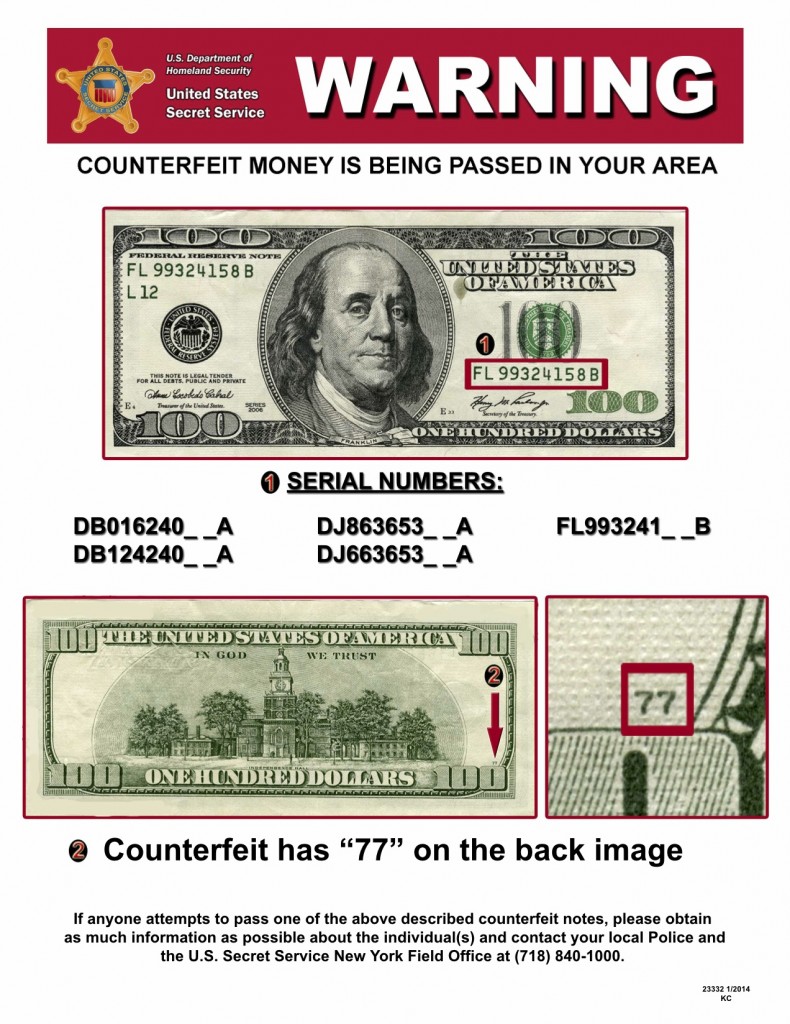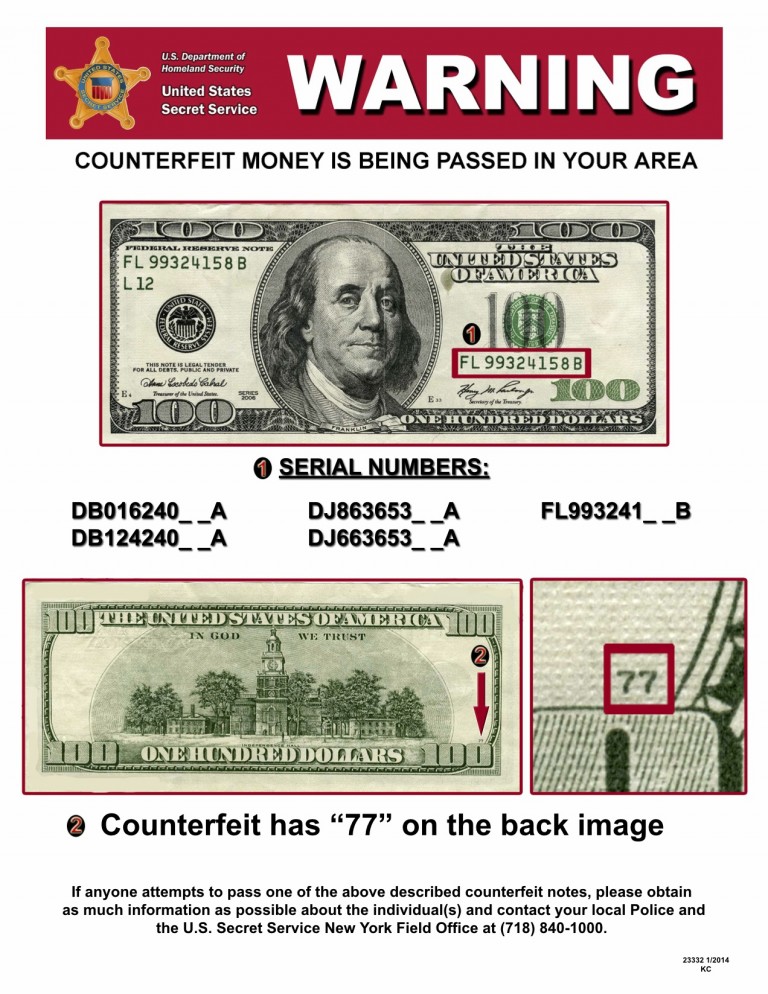
This flyer, put out last year by the Secret Service, identifies problems with a particular $100 note. Photo Courtesy of the United States Secret Service.
A 13-member crime ring, responsible for the production of over $86 million in counterfeit U.S. currency, has been taken down by the United States Secret Service. The last two defendants named in the scheme pleaded guilty last week to RICO conspiracy involving multiple acts of counterfeiting U.S. currency and money structuring. Two other co-conspirators of the 13 are Rego Park and Forest Hills residents.
The criminal enterprise involved the production, sale, and distribution of high-quality counterfeit $50 and $100 Federal Reserve notes. The Secret Service first detected the well-designed $100 in 1999. Since that time, over $86 million of this particular note has been seized globally. In addition, the crime ring was in the process of counterfeiting the “new” $100 note released in October 2013, including certain security features such as watermarks, security threads, and blue 3-D ribbons. According to the Secret Service, this new $100 is much more difficult to simulate, and there has not yet been a significant occurrence of its counterfeiting.
The Secret Service was originally founded in 1865 to combat the counterfeiting of U.S. currency. At the time, one-third to one-half of all currency in circulation was false. While less than 1/100th of one percent of the value of U.S. currency is currently counterfeit, the problem is still at the core of the Secret Service mission.
Queens does happen to be a focus for the agency right now, owing to nearby airports and the fact that a large portion of counterfeit is manufactured overseas, then brought in bulk to the United States. Additionally, in Queens, there are high populations of many of the groups known to be producing counterfeit abroad. Counterfeit produced in the United States is most frequently $20 Federal Reserve notes, while $100s are more commonly manufactured overseas.
Angelo Gurino, the owner of Ragtime Gourmet Supermarket on Cross Bay Boulevard in Howard Beach, has been operating his business for more than thirty years. “We used to get 10s and 20s, but now we’re getting 100s,” he said. “In the last six months, I’ve seen more counterfeit than ever.”
“We realize the impact that counterfeit money has on businesses, particularly Mom and Pop shops, and that’s why we are very aggressive in pursuing any leads we get,” said Michael Seremetis, Assistant Special Agent in Charge and spokesperson for the New York Field Office of the Secret Service. “We have a strong presence in Queens,” he added, noting that agents had “seen a lot of passing activity” in the borough of the crime ring’s high-quality $100, along with other notes.
“They had an organized distribution network, and we disrupted that,” said Seremetis.
The Secret Service works closely with local police to apprehend counterfeiters and get the notes out of circulation. They also make public education seminars available to local law enforcement and encourage individuals and businesses to “know your money,” offering printed materials along with websites that illuminate key features of real notes. In addition, the agency works with the Federal Reserve in developing security features of new notes.
Seremetis emphasized the agency’s knowledge of real money, and the importance of getting the general public and businesses to become more familiar with what that looks and feels like as opposed to what’s fake. “We are experts in detecting genuine currency,” he asserted.
Mario Siragusa, manager of Waldbaum’s in Howard Beach, said that the store was seeing counterfeit frequently this past fall, to the tune of “a couple of bills a day.” He added, “We’ve since implemented additional checkpoints and are experiencing minimal loss.”
The Secret Service does not endorse the use of the counterfeit detection pen, because it targets only one security feature and could give a false reading. Stores are legally entitled to refuse to accept any payment they deem unacceptable, because they suspect that it is false or for any other reason.
Seremetis encouraged businesses or individuals, if they encounter what they think is counterfeit currency, to contact local law enforcement. They can also call the USSS Field Office in Brooklyn directly and ask to speak with an agent in the counterfeit squad. For further information, visit secretservice.gov/knowyourmoney.
By Eugénie Bisulco

